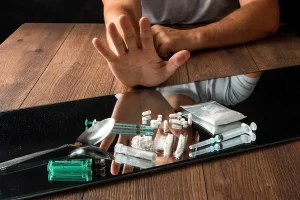Addiction affects millions globally, emphasizing the need for a robust support system. However, many struggle to offer effective guidance, feeling overwhelmed. Understanding addiction’s complexity and the need for a multifaceted approach is crucial. Let’s explore the most efficient tools and strategies to aid loved ones on their path to recovery. But how can we unlock the full potential of these tools?
Key Takeaways
- Empathy and boundary setting create a safe environment, avoiding enabling behaviors and nurturing a deeper connection to support loved ones in overcoming addiction.
- Assistance systems like 12-step programs, counseling, and online resources provide a holistic support system for loved ones to aid in lasting recovery.
- Identifying and avoiding high-risk situations, developing healthy coping mechanisms, and building a strong support network to guide triggers and cravings to prevent relapse.
- Counseling, support groups, and educational materials empower families and friends to support loved ones in overcoming addiction and achieving lasting recovery.
- A comprehensive support system, including sober living environments, therapists, and medical providers, helps loved ones overcome addiction and maintain sobriety.
Understanding Addiction’s Impact
When a loved one struggles with addiction, the ripple effects can be far-reaching, impacting not only the individual but their family, friends, and community, making it important to understand the profound impact of addiction on those surrounding the afflicted individual. Recognizing the complex web of relationships affected by addiction is necessary for developing effective tools for supporting loved ones, ultimately paving the way for a successful recovery.
The Role of Support Systems
In the journey towards recovery, a strong assistance system plays a vital role in helping loved ones overcome addiction, providing a foundation for healing and growth. This network of caring individuals offers emotional sustenance, guidance, and accountability.
- Family members and friends who understand the recovery process
- Assistance groups, such as 12-step programs or counseling sessions
- Trained professionals, including therapists and medical providers
- Online resources and recovery communities
- Sober living environments or halfway houses
Tools for Supporting Loved Ones
Besides a strong assistance system, a variety of effective tools can be utilized to support loved ones in their journey toward overcoming addiction. These Resources for Supporting Loved Ones can include counseling, support groups, and educational materials. By utilizing these tools, families and friends can provide a holistic support system, empowering their loved ones to overcome addiction and achieve lasting recovery.
Navigating Triggers and Cravings
Recognizing and guiding triggers and cravings is a crucial aspect of supporting loved ones in their recovery journey, as it empowers them to develop effective coping strategies and prevent relapse.
Some key considerations for guiding triggers and cravings include:
- Identifying and avoiding high-risk situations
- Developing healthy coping mechanisms, such as meditation or exercise
- Building a strong support network
- Creating a relapse prevention plan
- Practicing self-care and self-compassion
Empathy and Boundary Setting
How can establishing healthy boundaries and embodying empathy help loved ones overcome addiction and sustain long-term recovery? By setting clear boundaries, you can maintain a safe and supportive environment while avoiding enabling behaviors. Meanwhile, empathy allows you to understand and validate your loved one’s emotions, nurturing a deeper connection and encouraging openness about their struggles.
Frequently Asked Questions
How Can I Balance Supporting My Loved One With Self-Care?
Balancing support for your adored one with self-care requires intentional prioritization, setting boundaries, and seeking support networks to avoid burnout, ensuring your own emotional well-being while being a nurturing presence in their recovery journey.
Can I Stage an Intervention if My Loved One Refuses Help?
When a loved one refuses help, staging an intervention can be a final option, but it’s essential to approach the situation with empathy and a clear understanding of the individual’s struggles to avoid exacerbating the issue.
What if My Loved One Relapses, Should I Be Angry or Disappointed?
When a loved one relapses, it’s crucial to acknowledge your emotions, but avoid anger and disappointment, as they can worsen the situation; instead, focus on empathetic support and encourage them to re-engage with their recovery plan.
How Do I Set Boundaries Without Feeling Guilty or Selfish?
When setting limits, prioritize self-nurturing and establish clear expectations, communicating them confidently and respectfully, without excuse or validation, to maintain emotional well-being and avoid feelings of guilt or self-centeredness.
What Are Some Alternative Therapies for Addiction Recovery?
Alternative therapies for addiction recovery include art, music, and equine-assisted therapy, offering a comprehensive approach to healing and fostering emotional expression, self-awareness, and personal growth.
Conclusion
In summary, providing a thorough support system is essential for individuals struggling with addiction. By offering counseling, joining support groups, sharing educational materials, and implementing all-encompassing approaches, loved ones can play a vital role in facilitating lasting recovery. By setting empathetic boundaries and addressing triggers and cravings, a supportive environment can be created, empowering individuals to overcome addiction and achieve sobriety.










